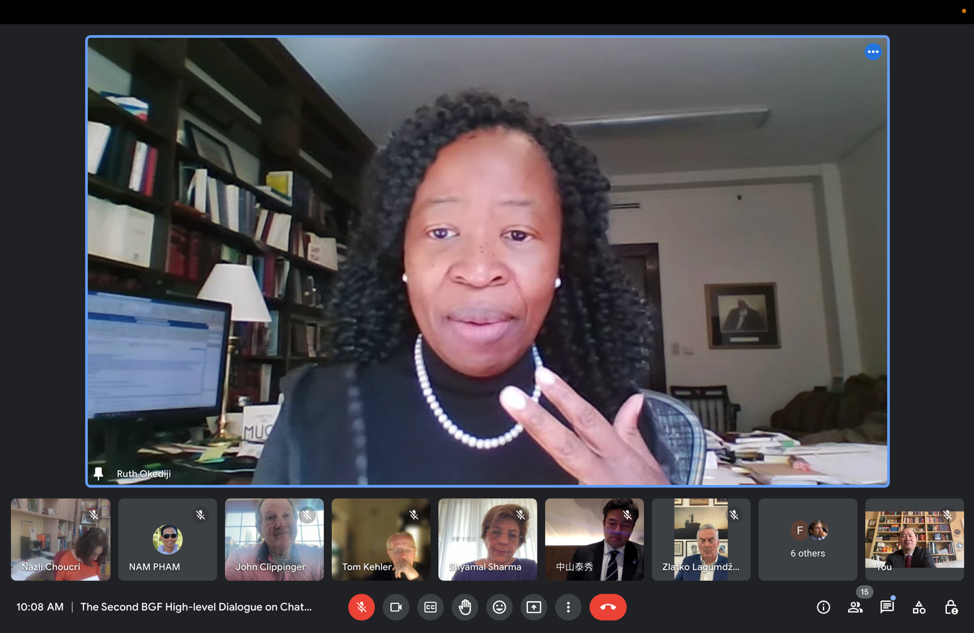
by Editor | Mar 26, 2023 | News
The Second BGF High Level Dialogue on Regulation Framework for ChatGPT, GPT4 and AI Assistants provided valuable insights into the complex issues surrounding the use of AI assistants. Speakers emphasized the importance of developing an ethical and responsible framework for the use of these technologies and highlighted the need for regulatory oversight to ensure that they are used in a way that benefits society as a whole.
YouTube Link: https://www.youtube.com/watch?v=Rtv7OoVjV_Y
Dr. David Silbersweig, Harvard Medical School, a renowned psychiatrist and neuroscientist, spoke about the potential impact of AI assistants on mental health. He emphasized the need to develop an ethical framework for the use of AI in psychiatry and mental health care to ensure that patients receive the best possible care. Dr. Silbersweig also discussed the potential risks associated with the use of AI in mental health care and called for caution in implementing these technologies.
Professor Ruth L. Okediji, an expert in Intellectual Property law, Co-director of Berkman Klein Center, Harvard Law School, spoke about the legal and regulatory implications of using AI assistants. She highlighted the need to strike a balance between innovation and regulation to ensure that AI assistants are developed and used in an ethical and responsible manner. Professor Okediji also discussed the importance of protecting intellectual property rights in the development and use of AI assistants.

Professor Ruth L. Okediji speaks at the Second BGF High-level Dialogue
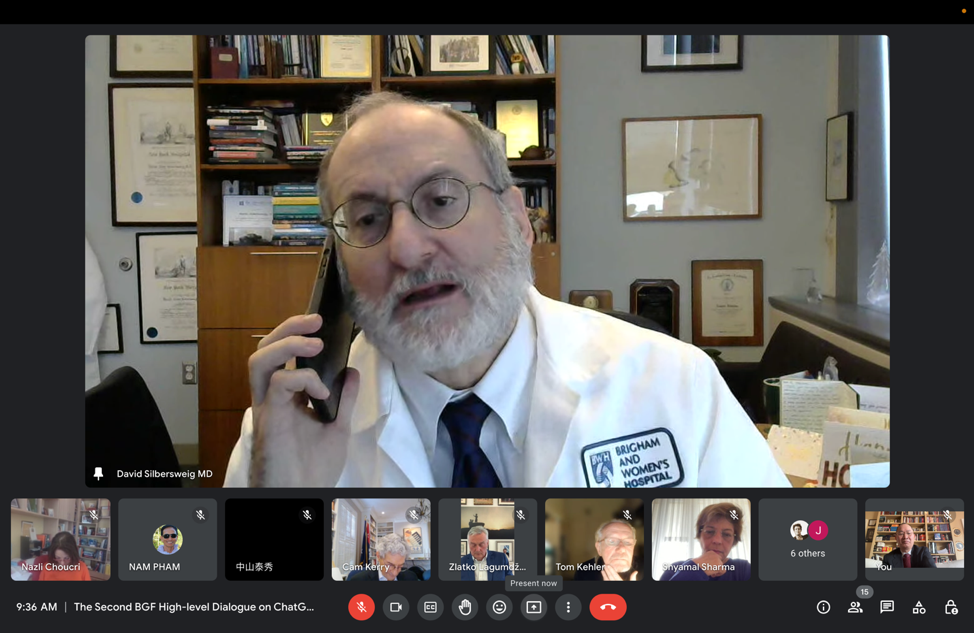
Professor David Silbersweig speaks at the Second BGF High-level Dialogue
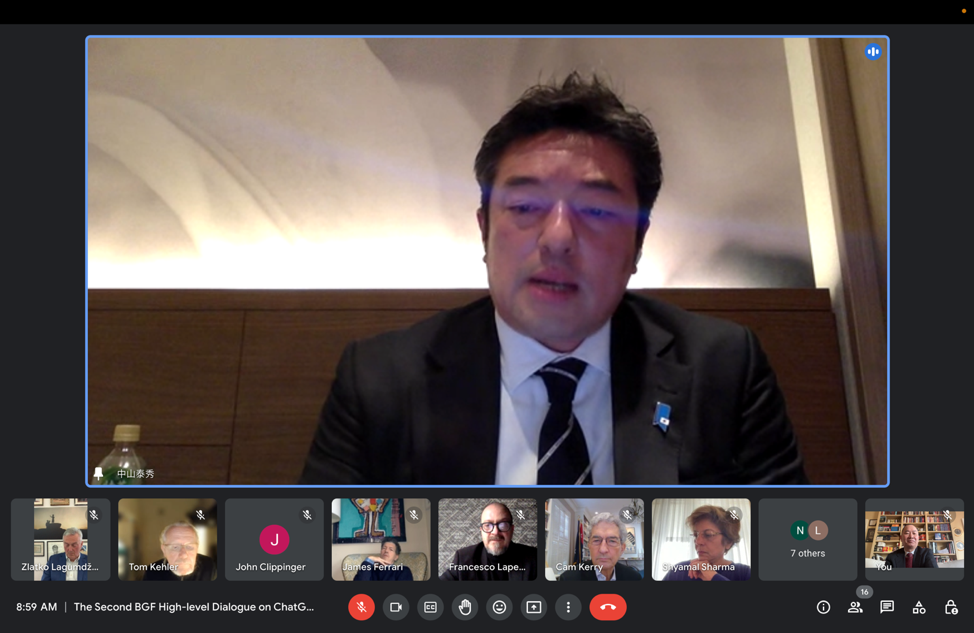
by Editor | Mar 26, 2023 | Global Alliance for Digital Governance
The speech of Yasuhide Nakayama, Coordinator of the Shinzo Abe Initiative for Peace and Security, at the second BGF High-level Dialogue on Regulation Framework for ChatGPT, GPT4, and AI Assistants, March 22, 2023.
In 1945, Japan and the United States marked the end of their war. Today, 78 years later, the two nations that once fought against each other have formed the world’s most admired alliance, the Japan-US alliance. And today, on the grand stage of the WBC finals, they are battling it out in a baseball game. Currently, Russia is waging an aggressive war against Ukraine, and it is crucial to stop this invasion as soon as possible. As someone living in Japan, I predict that what is happening in Europe today could potentially occur in the Taiwan Strait tomorrow. Collaboration between the Chinese People’s Liberation Army and Russia seems to be escalating every day, with military spending and activities increasing compared to the past. Two years ago in the fall, the Russian military conducted military exercises as far west as Hawaii. As you may know, the South China Sea has become a military base for China. While AI stands for artificial intelligence, it also has the meaning of “artificial island” in China. If China’s People’s Liberation Army were to launch a JL-3 missile towards the United States from the South China Sea, it is important to understand that the White House is already within its range. Furthermore, preparations and technologies for battles in space, cyberspace, and electromagnetic waves are being aggressively developed. It is easy to predict that countries will use AI for military purposes. No matter how many rules are established, humans are not gods and can lie. Until this issue is resolved, the battle between good and evil may never end. However, we must not give up on this. The responsibility for creating artificial intelligence lies with humanity. In order to prevent malicious AI from doing harm, we must nurture benevolent AI. There is no time to rest in this battle and competition.
When AI is implemented in society, laws and regulations will be necessary.
Here are some thoughts on the laws and regulations needed for the social implementation of AI:
- Transparency and accountability
- Even if AI is programmed by humans, it can make autonomous judgments based on algorithms and data. Therefore, it is necessary to make the decisions and reasoning of AI transparent. If AI makes a mistake, it is important to clarify who is responsible for it.
- Protection of privacy
- AI may collect and use personal information, so laws such as the Personal Information Protection Act and the Data Protection Act will be necessary. It is also important to clearly state the purpose of collecting personal information and obtain the individual’s consent.
- Elimination of bias and discrimination
- AI can have biases and discriminatory thinking like humans. Therefore, rules are needed to prevent biased or discriminatory decision making by AI.
- Ensuring safety
- If AI makes important decisions, it is important to ensure that the decisions are safe. For example, if an autonomous vehicle causes an accident, it is necessary to clarify who is responsible.
- Consideration of social impact
- Rules are needed to minimize the impact of AI on society. For example, if jobs are automated by AI, policies will be needed to support people affected by the automation. In summary, laws and regulations are necessary for the social implementation of AI, including transparency and accountability, protection of privacy, elimination of bias and discrimination, ensuring safety, and consideration of social impact. These regulations will make the social implementation of AI safer and more sustainable.
Yesterday, Japan’s Prime Minister Fumio Kishida visited Kyiv, Ukraine and held talks with President Zelensky. It is also planned for this year’s G7 Summit to be held in Hiroshima, Japan, which is the birthplace of Prime Minister Kishida. In this sense, I believe that the Prime Minister’s commitment to nuclear disarmament is among the highest of any politician in the world. As a personal dream of mine, I would like to attract the United Nations Asia-Pacific headquarters to Japan. New York has the UN headquarters, and Geneva in Switzerland has the UN European office. Despite the presence of populous countries such as India and China in Asia, there is no place for everyone to gather and discuss together as the United Nations. I feel that Hiroshima, as the first city to suffer an atomic bombing, is the most suitable city and location to attract the United Nations Asia-Pacific headquarters due to its historical significance. In Japanese, “AI” can also mean “love”. Therefore, it is important for the social implementation of AI to make AI understand and appreciate “love”. Lastly, I believe that when a malevolent AI or an AI that antagonizes humanity emerges in this world, the only ones capable of fighting against it would be benevolent AI and God. I am very much looking forward to meeting you all in Japan in April.

Mr. Yasuhide Nakayama speaks at the Second BGF High-level Dialogue
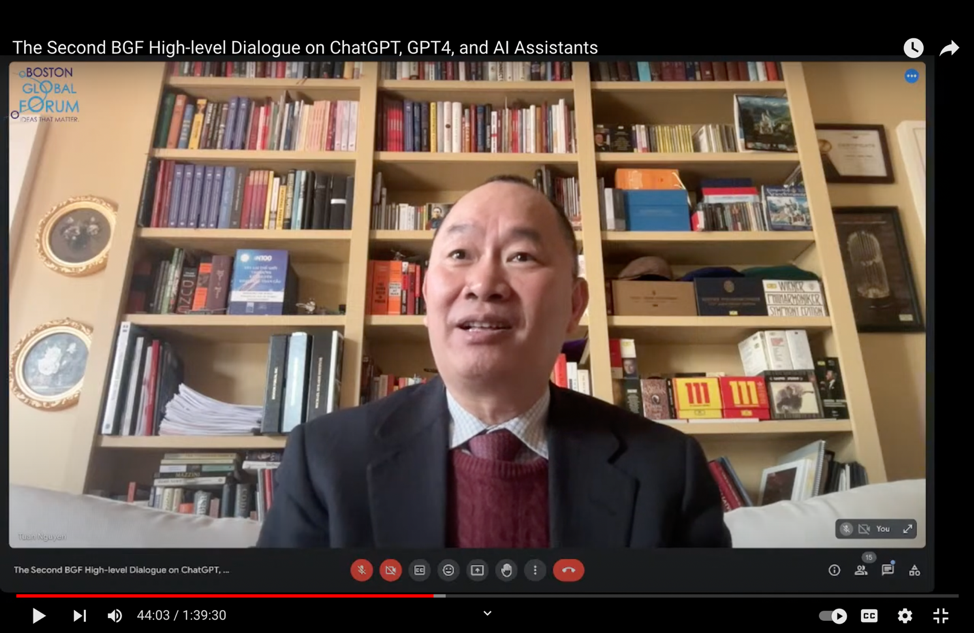
by Editor | Mar 26, 2023 | Event Updates, News
At the Second BGF High-level Dialogue on Regulation Framework for ChatGPT, GPT-4, and AI Assistants, March 22, 2023, Nguyen Anh Tuan, CEO of the Boston Global Forum, introduced the Global Enlightenment Mountain Program, a “Silicon Valley” in AI World Society (AIWS).
The Global Enlightenment Mountain Program, developed by the Boston Global Forum, is a revolutionary initiative aimed at creating a virtual Silicon Valley model for the AI and Digital era. This program aims to connect research centers, labs of leading universities, pioneering technology innovation companies from various countries including the US, Japan, India, Europe, Canada, Australia, South Korea, and Israel. By leveraging the collective knowledge and resources of these diverse regions, the program seeks to foster innovation and collaboration in the technology industry.
One of the key goals of the Global Enlightenment Mountain Program is to connect financial investment resources and talented human resources to participate in development and market. By pooling together resources from various sources, the program hopes to accelerate the pace of innovation and facilitate the creation of new products and technologies.
In addition, the program places a strong emphasis on understanding the needs of the market and society. By working closely with end-users and stakeholders, the program aims to identify areas where new technologies can create the greatest impact and support the development of products that meet these needs. Furthermore, the program provides support to create brands, go to market, and develop user communities, helping to ensure that new products and technologies are able to achieve widespread adoption and success.
Overall, the Global Enlightenment Mountain Program represents an exciting and innovative approach to fostering collaboration and innovation in the technology industry. Through its unique virtual model and focus on connecting resources and understanding market needs, the program is well positioned to drive meaningful change and shape the future of the digital era.
The Global Enlightenment Mountain Program includes the following components:
- Global Enlightenment Mountain Labs and Centers: This component involves connecting research centers and labs of leading universities, as well as pioneering technology innovation companies from various countries, to foster collaboration and innovation in the technology industry. This hub aims to attract and support young talent from all corners of the world.
- Global Enlightenment Mountain Market: This component emphasizes the importance of understanding the needs of the market and society, and working closely with end-users and stakeholders to identify areas where new technologies can create the greatest impact. The program seeks to develop products that meet these needs, and provide support to create brands, go to market, and develop user communities to ensure widespread adoption and success.
- Global Enlightenment Mountain Finance: This component aims to connect financial investment resources and talented human resources to participate in development and market, and pool together resources from various sources to accelerate the pace of innovation.
- Global Enlightenment Mountain Policy: It involves developing policies and regulations to support innovation and collaboration in the technology industry.

Mr. Nguyen Anh Tuan speaks at the second BGF High-level Dialogue

Mt. Cadillac, Acadia National Park
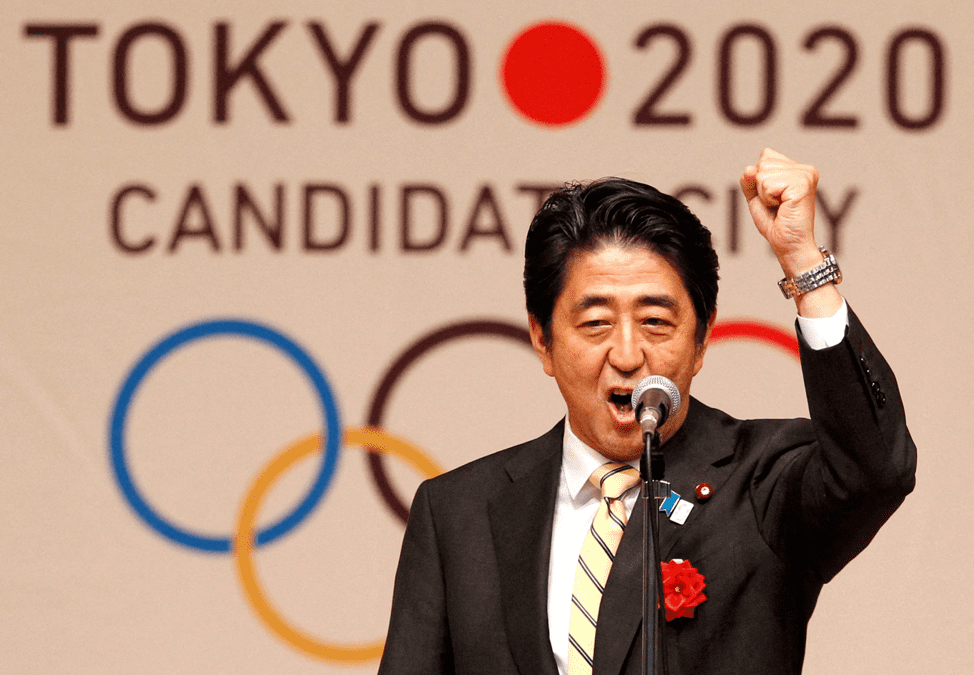
by Editor | Mar 19, 2023 | News
The Boston Global Forum (BGF) is set to honor and memorialize former Prime Minister Shinzo Abe as a Global Enlightenment Leader at the upcoming Shinzo Abe Conference, which will take place on April 5th in Tokyo. The conference will be centered around the theme “Make the Economy of Japan Great in the Age of Global Enlightenment”.
PM Abe, who served as the Prime Minister of Japan from 2006 to 2007 and 2012 to 2020, will be recognized for his outstanding contributions to promoting peace and security in the world. In 2015, PM Abe was honored with the BGF World Leader for Peace and Security Award, in recognition of his role in strengthening Japan’s relationship with other countries and his efforts to promote global peace and security.
The Shinzo Abe Conference will bring together distinguished leaders from Japan, USA, India to discuss the challenges and opportunities facing Japan’s economy in the age of globalization. The event will also serve as a platform to celebrate PM Abe’s legacy as a global statesman and his vision for a more prosperous and peaceful world.
By honoring Prime Minister Shinzo Abe as a Global Enlightenment Leader, BGF hopes to inspire others to follow in his footsteps and work towards a more secure and prosperous world.
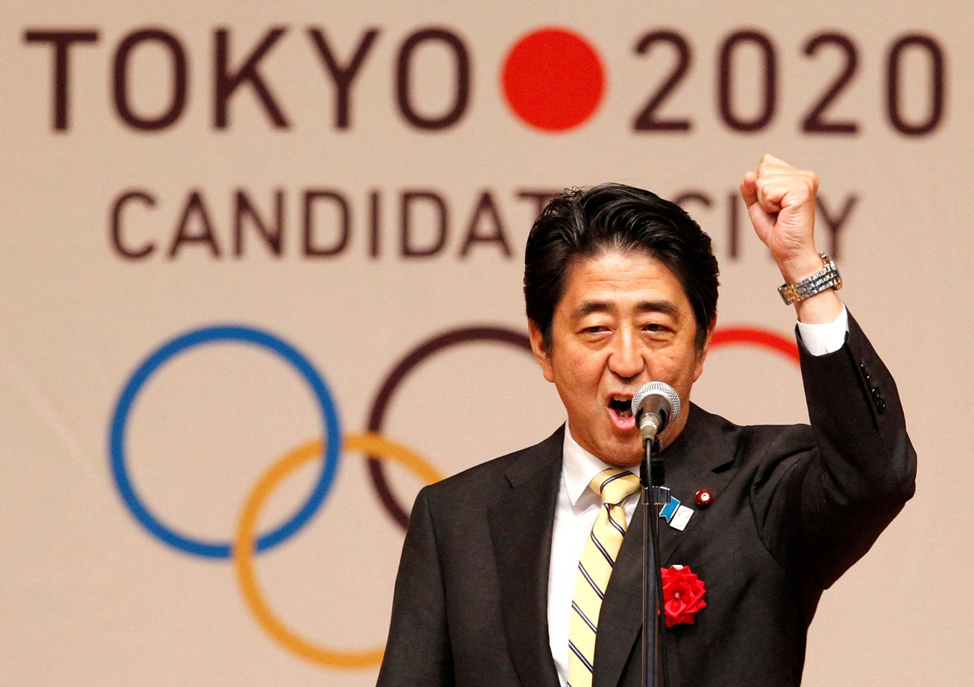
PM Abe speaking at an Olympic Games 2020 Tokyo event

by Editor | Mar 19, 2023 | Global Alliance for Digital Governance
Cameron Kerry, the former General Counsel and Acting Secretary of the United States Department of Commerce, will be speaking at the BGF High Level Dialogue on Regulation Framework for AI Assistants, including ChatGPT and GPT4. The dialogue will take place online on March 22, 2023, from 8:30 a.m. to 10:30 a.m. EDT. Kerry’s expertise in the legal and regulatory aspects of commerce will provide valuable insights into the challenges and opportunities that come with the development and growth of AI.
In addition to speaking at the BGF High Level Dialogue on Regulation Framework for AI Assistants, Cameron Kerry has been a frequent participant in significant events hosted by the organization. In addition, he is also a member of the Global Enlightenment Community, which was co-founded by Governor Michael Dukakis to celebrate his 90th birthday in 2023. Members of the Community are distinguished leaders, policy makers, business leaders, strategists, thinkers, scholars, innovators and experts from various fields to explore ideas and solutions to build the Age of Global Enlightenment. As a member of this community, Kerry’s contributions to the dialogue around AI’s impact on society are likely to be even more significant.

Former Acting Secretary of Commerce Cameron Kerry
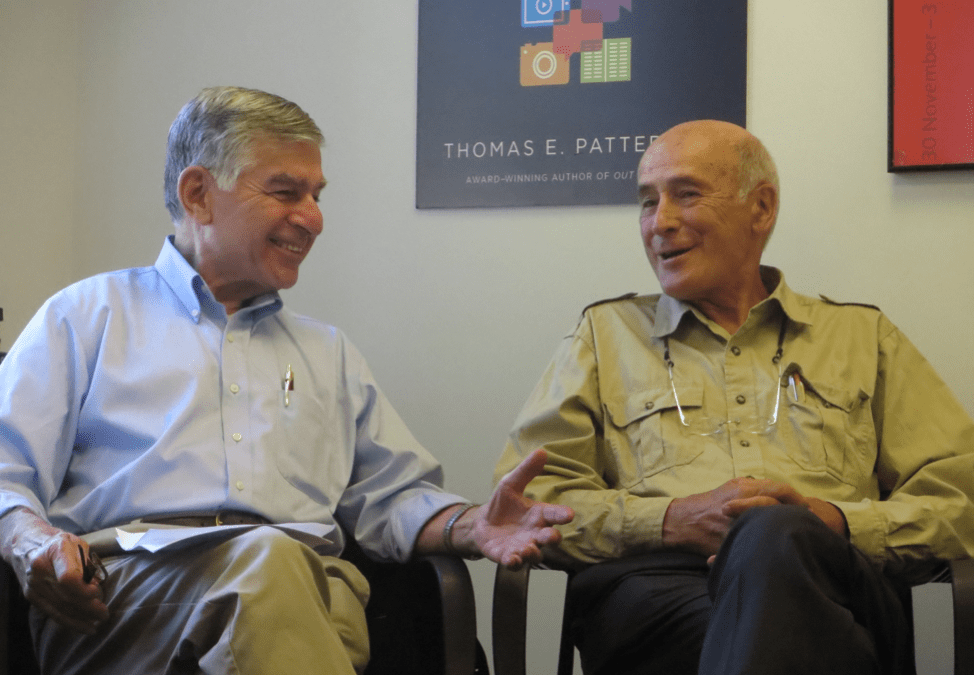
by Editor | Mar 19, 2023 | News
In 2023, a milestone birthday will be celebrated for Governor Michael Dukakis – his 90th birthday. As part of this celebration, Governor Michael Dukakis and Boston Global Forum have founded the Global Enlightenment Community, which aims to accompany and is dedicated to building a better world in the age of Artificial Intelligence, dedicating to the United Nations Centennial Initiative and building the Age of Global Enlightenment as laid out from the concepts in the book “Remaking the World – Toward an Age of Global Enlightenment”.
Notable figures of Global Enlightenment Community are the 24 co-authors of “Remaking the World – Toward an Age of Global Enlightenment,” such as Governor Michael Dukakis, European Commission President Ursula von der Leyen, President Vaira Vike-Freiberga, Prime Minister Zlatko Lagumdzija, Speaker of Swedish Parliament Andreas Norlen, father of the Soft Power theory Joseph Nye, Vint Cerf, father of Internet, distinguished professors Judea Pearl, Alex Pentland, Thomas Patterson, Nazli Choucri, Japanese Minister Taro Kono; or prestigious leaders such as President of Finland Sauli Niinisto, former Prime Minister of Israel Ehud Barak, Professor Edward Feigenbaum, MIT professor Randall Davis, Harvard professor David Silbersweig.
To mark the occasion, a book titled “From the Massachusetts Miracle to the Age of Global Enlightenment” will also be launched. The book will feature contributions from leading figures in academia, politics, and business, highlighting Governor Dukakis’ contributions to public service and his vision for a better world, from Governor of Massachusetts to AI World Society – the Age of Global Enlightenment.
The launch of the Global Enlightenment Community and the book will be a fitting tribute to Governor Dukakis’ lifelong commitment to public service and his passion for promoting progressive change.
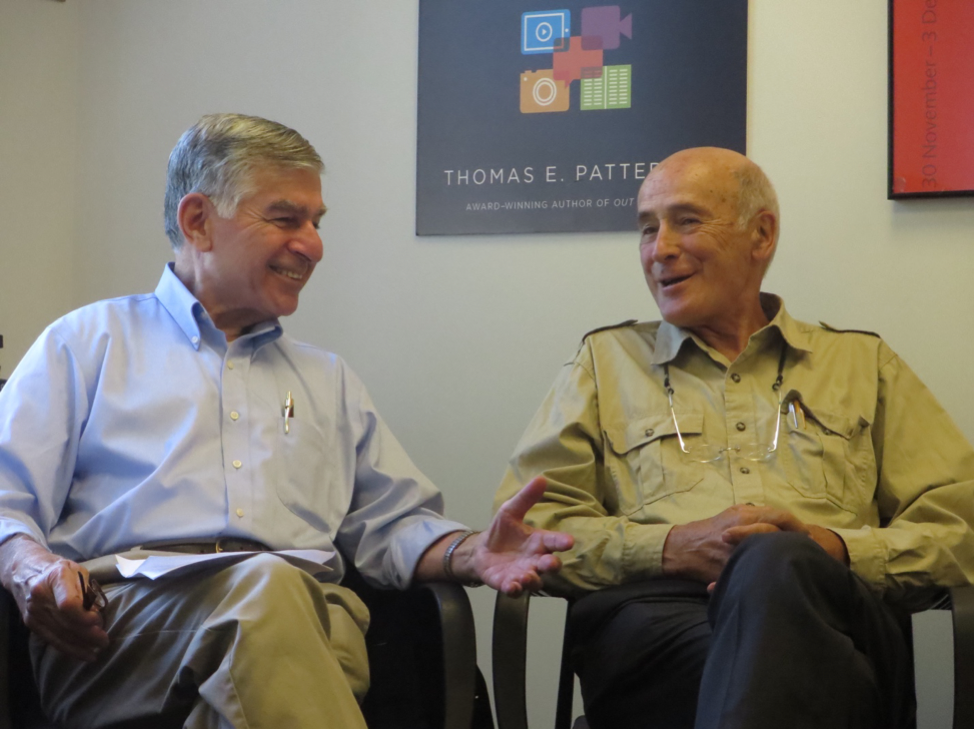
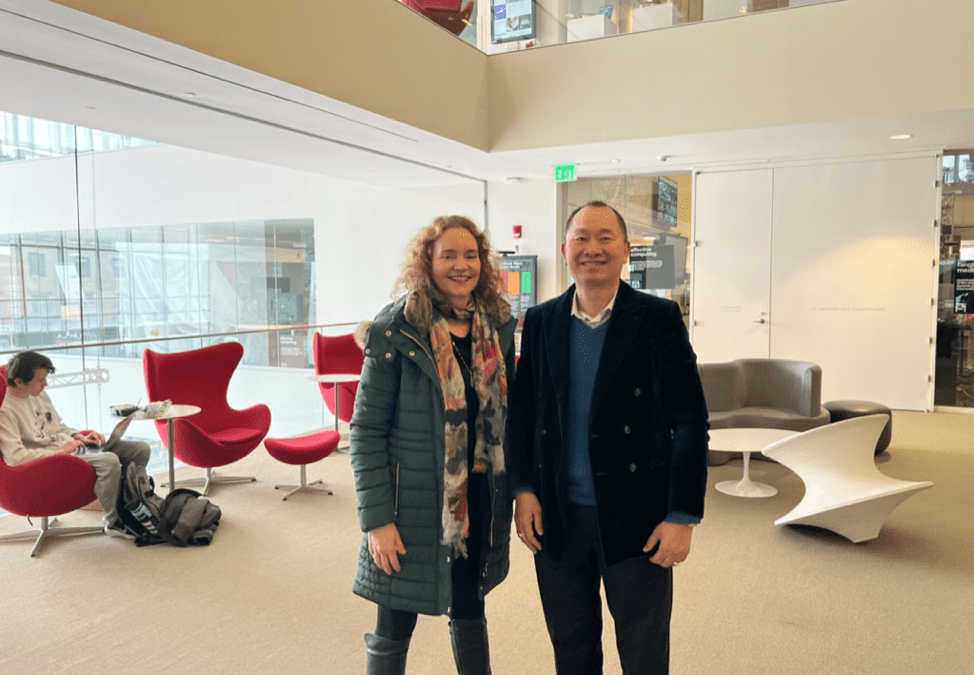
by Editor | Mar 12, 2023 | News
On March 7th, 2023, at MIT, the CEO of Boston Global Forum and Board Member of History of AI Initiative, Mr. Nguyen Anh Tuan, met with Tom Kehler and Kim Polese at MIT to discuss their contributions to the field of artificial intelligence, and how they can participate in the History of AI Initiative. Tom Kehler, co-founder of CrowdSmart, and Kim Polese, Executive Chairwoman of CrowdSmart, were announced to be historical figures of the History of AI House, recognizing their significant impact on the development and advancement of AI technology. Kim Polese is one of the most influential women in the technology industry, recognized for her leadership and innovation in software development and Internet. She was co-founding manager of Java language when she worked in Sun Microsystems in 1995. Her work on Java has been instrumental in shaping the way we use technology today. Tom Kehler has been a pioneer in the field of artificial intelligence, actively involved in the industry for many years and witnessing the evolution of AI technology from its early days to the present.
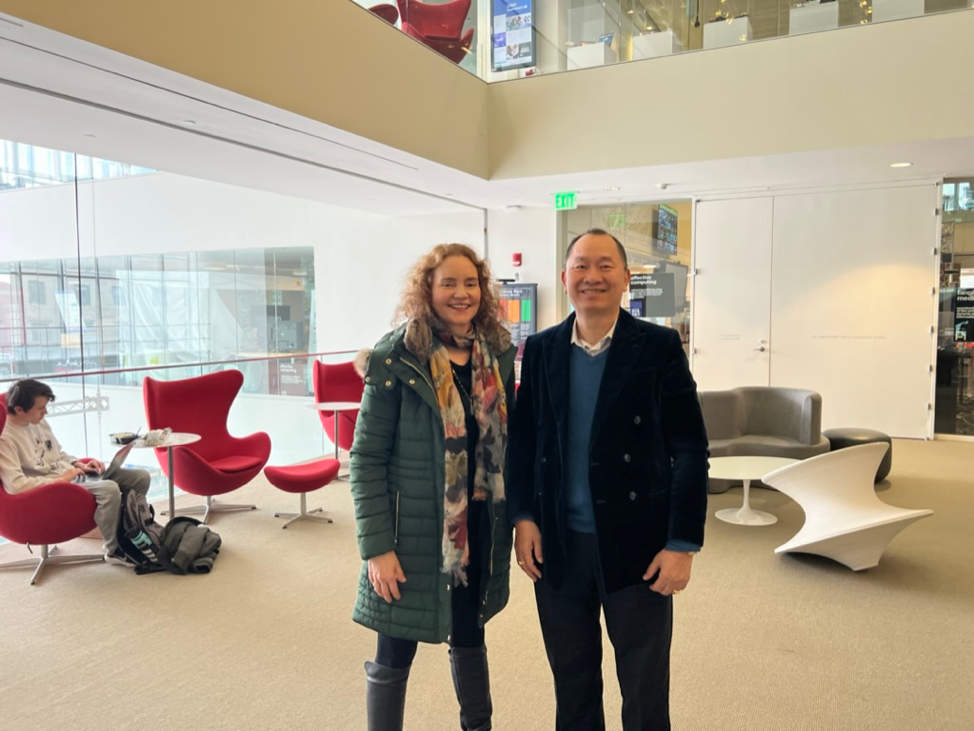
Nguyen Anh Tuan and Kim Polese
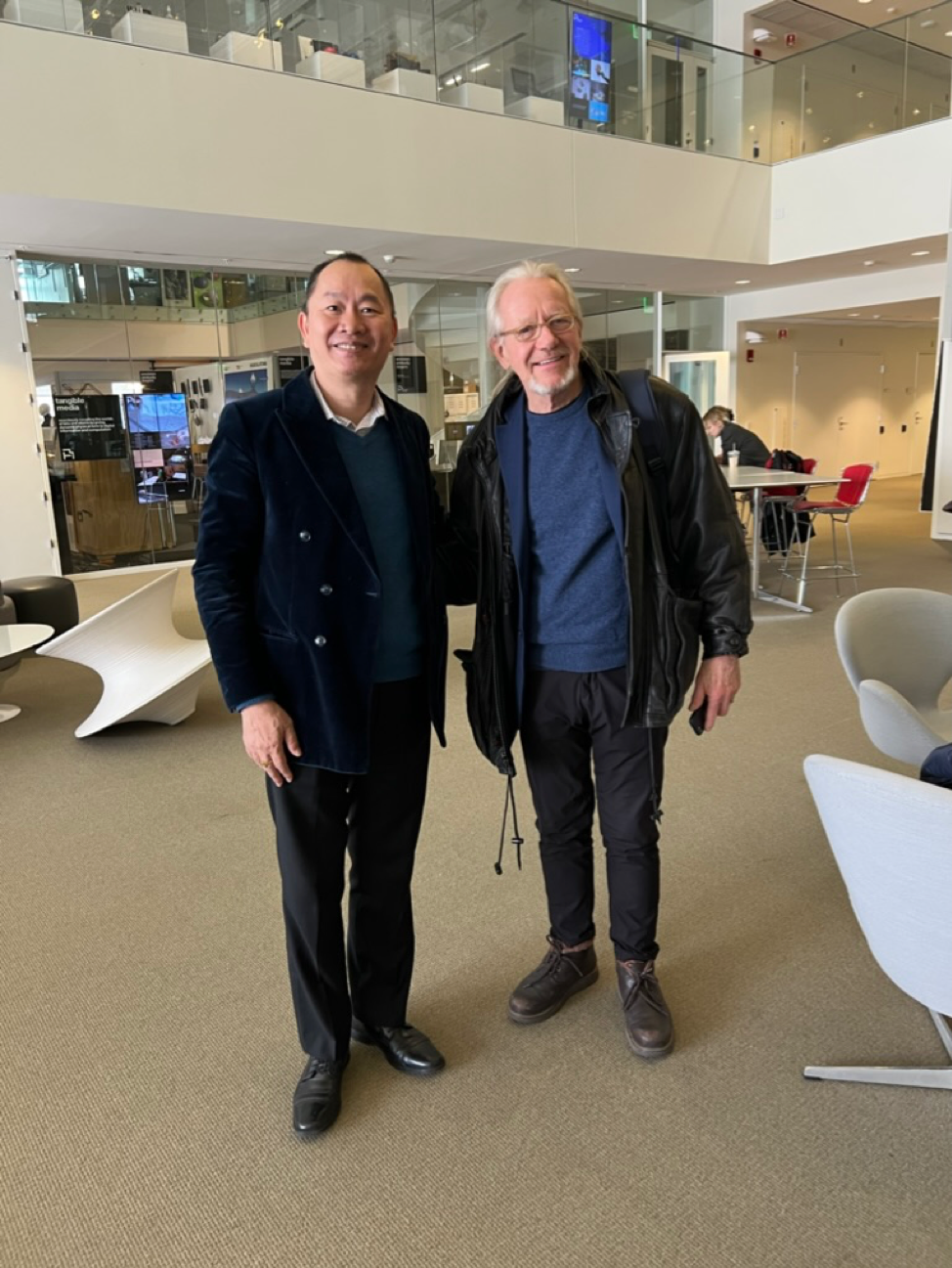
Nguyen Anh Tuan and Tom Kehler
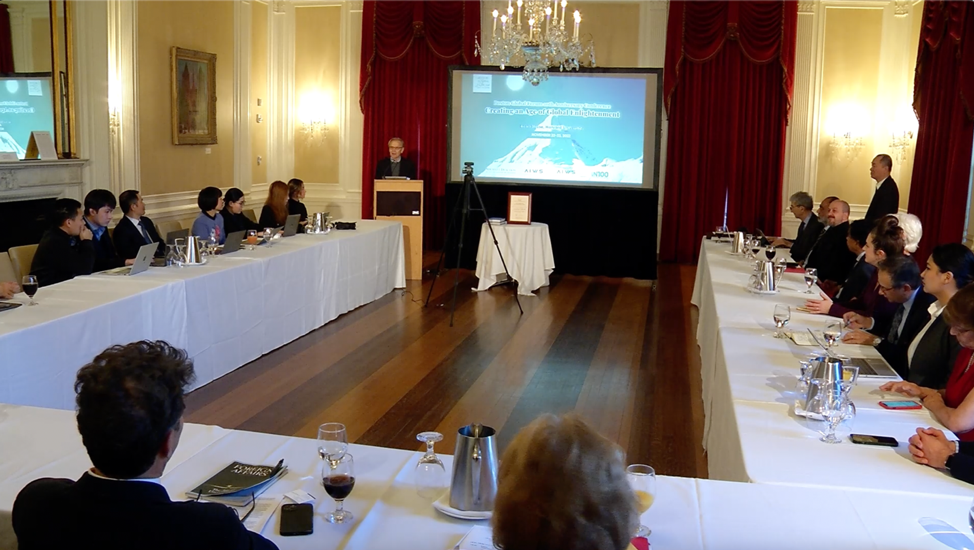
by Editor | Mar 12, 2023 | News
The upcoming Shinzo Abe Initiative Conference on April 5, 2023, in Tokyo will showcase a special report titled “Make the Economy of Japan Great in the Age of Global Enlightenment.” The report aims to address the challenges faced by the Japanese economy in the current global landscape and provide recommendations for sustainable growth and prosperity, with the aid of AI.
The special report will cover a wide range of topics related to the Japanese economy, including innovation, technology, trade, investment, and challenges faced by the Japanese workforce such as an aging population and a shrinking labor force. The report is expected to draw insights from economists, business leaders, policymakers, and other stakeholders, providing a comprehensive and informed view of the Japanese economy.
In addition to the presentation of the special report, the conference will also feature keynote speeches, panel discussions, and networking opportunities. The aim is to foster collaboration and generate new ideas that can drive Japan’s economy forward in the Age of Global Enlightenment. The first Shinzo Abe Initiative conference was organized at Harvard University Loeb House on November 23, 2022. Building on this momentum, the second conference will take place in Tokyo.
The conference is part of the initiative’s efforts to promote peace and security between Japan, Asia, and the world. Global Enlightenment Leaders of Boston Global Forum, the founder of the Shinzo Abe Initiative, contribute to this special report and aim to bring together leaders and experts from around the world to share their insights and perspectives.

Global Enlightenment Leaders at the Shinzo Abe Initiative Conference at Loeb House, Harvard University, November 23, 2022
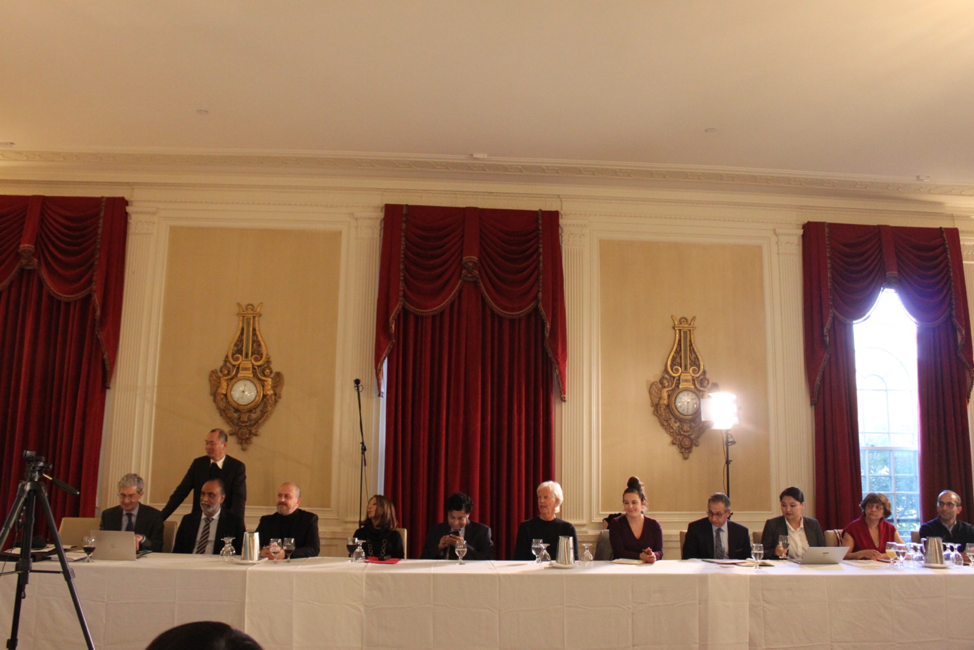
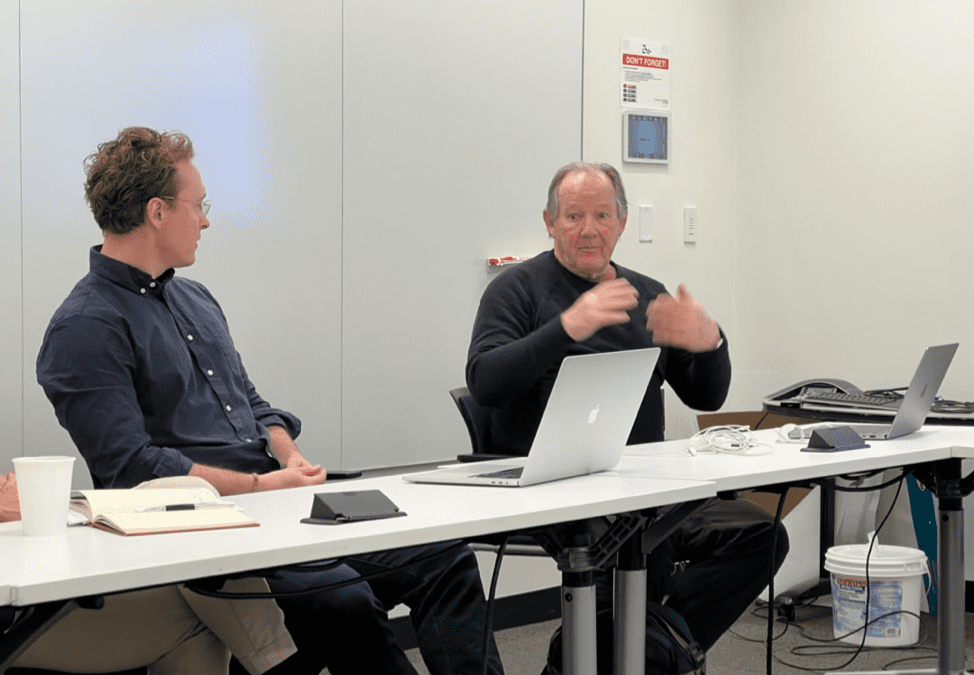
by Editor | Mar 12, 2023 | Global Alliance for Digital Governance
John Clippinger – Co-founder of BioForm Labs
At a time of profound threats to the biosphere, democratic institutions and global stability, scientifically informed perspectives and policies are needed to counter conspiratorial narratives and outright distrust in science and civil discourse. While the Industrial Machine Age and Free Market Capitalism engendered an era of extraordinary material wealth for the “industrialized world”, it has also imperiled all life on the planet. Furthermore, the failure of “free markets”and industrialized democracies to effectively and equitably govern has engendered a growing nihilism and fatalistic acquiescence to authoritarianism. The nightmare of an all knowing and all seeing Machine Intelligence, as exemplified in Artificial Intelligence, especially, as seen in recent ChatGPT projects, seems to further confirm such an inevitability.
But this need not be the case. Our group, Coalition for Collective Intelligence Commons (CCIC) was recently convened at the MIT Media Lab on the premise that we are transitioning from a 17th century “abiotic” or mechanistic view of Nature and ourselves to one based upon biotic principles, that is, a physics of living things. With the convergence of computational biology, complexity sciences, neuroscience, genomics, and physics has emerged science and evidence based computational methods for reimagining our democratic and economic institutions in a manner that is in concert with Nature and human dignity. This approach has recently come together to provide a coherent framework for a scale free and domain free AI that is based on the principles of living things. Known as Active Inference, Bayesian Belief modeling and Free Energy Minimization, this work builds upon a long history of cybernetics, information, computation and complexity sciences. It is best known recently through the work of Judea Pearl and the computational neuroscientist, Karl Friston.
The purpose of the CCIC is to form an entity for researchers, scientists, ecological and democratic activists, and new “biotic” companies to ensure that such technologies do not become captured by the powerful few, but serve the global commons, the Greater Good, through science and evidence based policies, firms, and institutions that strengthen democratic and open societies.
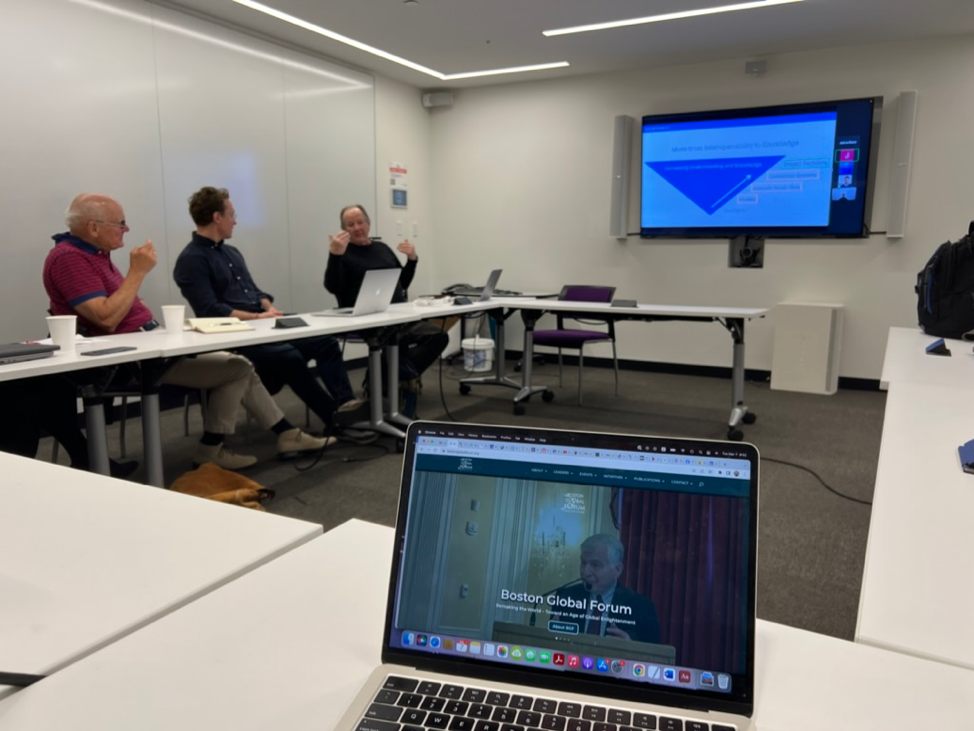
John Clippinger and CICC at MIT Media Lab, March 6-7, 2023
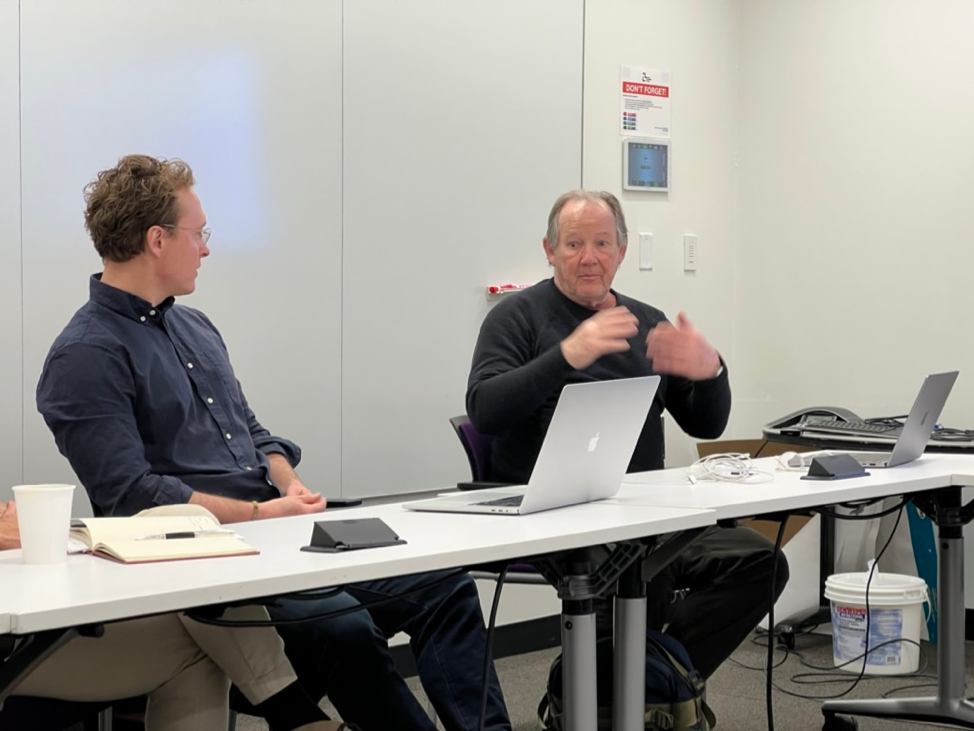
John Clippinger and CICC at MIT Media Lab, March 6-7, 2023

















